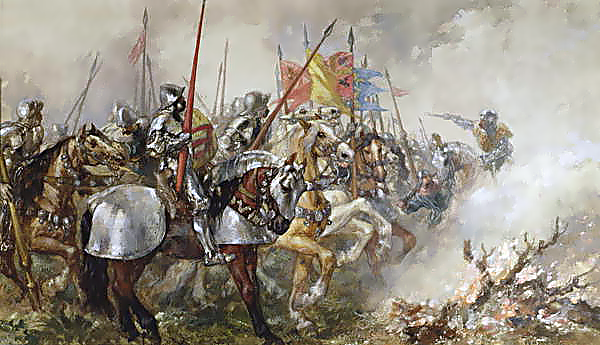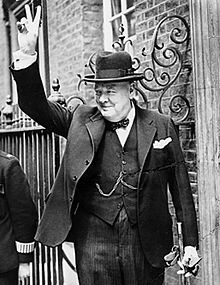We few, we happy few, we band of brothers”
Today is St. Crispin’s Day, my son informs me, the 596th anniversary of the Battle of Agincourt.
King Henry V of England was hopelessly outnumbered by the approaching French Army, but he stood firm and roused his troops, commending them to the hands of God and each other, and led them to a decisive victory that was the beginning of the end of the dominance of the nobility in warfare. For centuries, the heavily armored knights on horseback fielded by the nobility of each land were the overwhelming force of warfare. Henry, instead, placed his English longbowmen in the forefront of battle — and defeated the French horse! Some say the “V for victory” sign descended from the victory salute of the two stringfingers of the longbowmen in response to a French before-battle threat to cut off the string fingers of all the longbowmen after they won.
If that sign means peace, it’s a peace after a hard fought victory!
This story shall the good man teach his son;
Henry V, William Shakespeare
And Crispin Crispian shall ne’er go by,
From this day to the ending of the world,
But we in it shall be remember’d;
We few, we happy few, we band of brothers;
For he to-day that sheds his blood with me
Shall be my brother; be he ne’er so vile,
This day shall gentle his condition:
And gentlemen in England now a-bed
Shall think themselves accursed they were not here,
And hold their manhoods cheap whiles any speaks
That fought with us upon Saint Crispin’s day.

